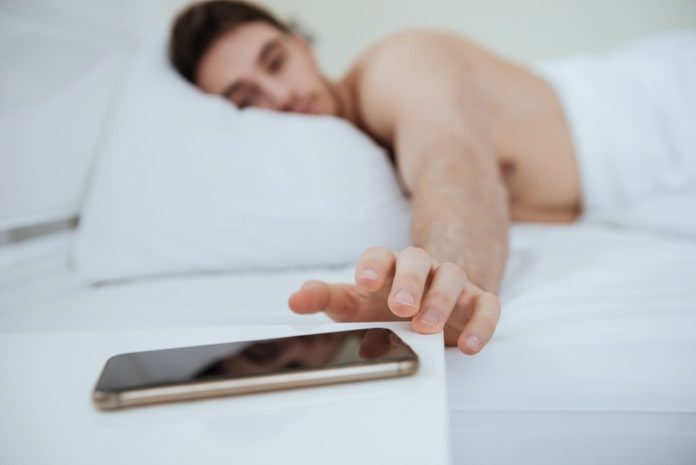A recent study looked at the patterns of being woken up by your phone and the effects of smartphones on overall health.
The effects of smartphones on sleep may be quite detrimental. Being awakened during our sleep may not only reduce sleep quality but may indeed cause negative effects on both mental and physiological health.
Smartphones are believed to disrupt a stage of our sleep that is known as “slow-wave” sleep, which is the deepest stage of sleep. A lack of quality sleep may be attributed to slow-wave disruptions and may further cause detrimental effects on our health.
Studies on the effects of smartphones on sleep are nothing new, but they are often limited to self-reports by individuals. They also often use a sample of younger adults or teenagers, which may affect the results.
One study has attempted to investigate, objectively, how our sleep habits are affected by smartphone use overnight. As reported in PLOS One, a sample of 815 individuals was handed out smartphones that were running a software to continuously record the activity of the users. The activity of users during the time they reported to be asleep was recorded and further analyzed.
The researchers found that one of three had still used their cell phones during the first two hours of sleep. Among the participants, 12-15% were still using their cell phones in the middle of the night. The majority of the activity is reported to be text messaging.
Forty-one per cent of the participants were reported to have at least one day of interrupted sleep due to smartphone activity. This meant less than six hours of sleep uninterrupted. The researchers found that frequent interruption was related to lessened health outcomes. This included higher odds of being overweight.
Other than the higher rates of body mass index, the researchers found no mental or physical health problems associated with sleep interruption. This finding is surprising given that many other studies often find a relation between impaired sleep and depression.
Nevertheless, the interruptions do show an association with being overweight, and thus presents concerns to a certain degree. Sleep loss may lead to metabolic dysfunction, as mentioned by the authors.
The study, however, does not indicate a causal relation between smartphone use and the effects on sleep and health. It may be the case that smartphones are just used by the participants who are already awake to counteract boredom. Furthermore, there are many other devices that may influence sleep, such as a television.
Written by Maor Bernshtein
Reference: Rod NH, Dissing AS, Clark A, Gerds TA,Lund R (2018) Overnight smartphone use: A newpublic health challenge? A novel study designbased on high-resolution smartphone data. PLoSONE 13(10): e0204811. https://doi.org/10.1371/journal.pone.0204811



